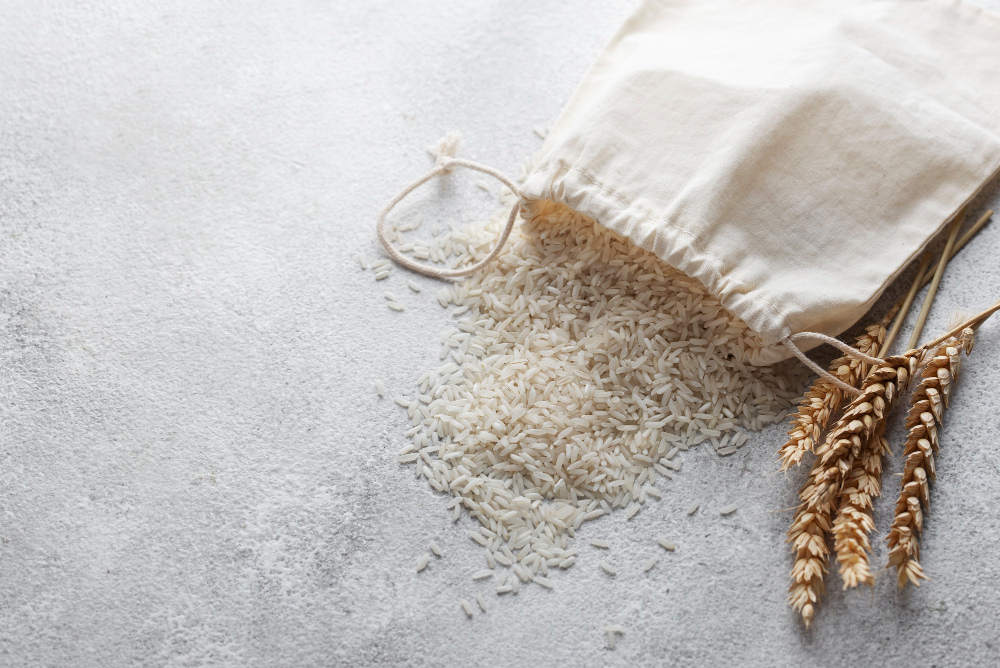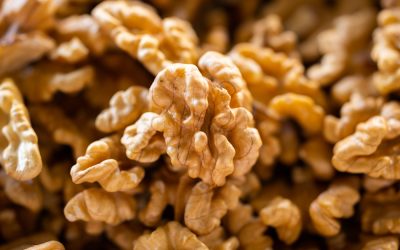Can Dogs Eat Rice? White, Brown, Jasmine & Basmati

Rice has long been a dietary staple for humans because if its digestibility, affordability, and versatility. It’s no surprise that it has also become a common ingredient in dog food and homemade meals for pets. However, deciding whether rice is a good fit for your dog’s diet isn’t as straightforward as it seems. Factors such as the type of rice, how it’s prepared, and your dog’s individual health all play a significant role in this decision.
This guide will walk you through everything you need to know about feeding rice to dogs.
Rice in Dog Diets: Friend or Foe?
The debate about whether rice belongs in a dog’s diet has been ongoing for years. On one side, advocates for rice highlight its role as an easily digestible carbohydrate that can provide quick energy for active dogs. Rice has also been a staple in many commercial dog foods for decades, pointing to its history of safe use.
On the other hand, some argue that since dogs are descendants of wolves, their diets should primarily consist of animal protein rather than grains like rice. This perspective has contributed to the rise of grain-free dog food in recent years.
As with most debates, the truth lies somewhere in between. Dogs have evolved to digest grains and can derive nutrition from rice, but the benefits depend on factors like their health, age, and activity level. It’s important to remember that every dog is unique. What works well for one may not be suitable for another.
Nutritional Benefits of Rice for Dogs
When prepared correctly and served in moderation, rice can offer several benefits to dogs:
- Energy Boost: Packed with carbohydrates, rice provides a quick energy source for active pups.
- Digestibility: Cooked rice is gentle on the stomach, making it a good choice for dogs with sensitive digestion.
- Fiber: Brown rice, in particular, is rich in fiber, which promotes healthy digestion.
- Essential Nutrients: Rice contains small amounts of B vitamins, iron, and magnesium.
- Low in Fat: Naturally low in fat, rice can be a suitable addition to calorie-conscious diets.
As described in the Purina (Your Pet, Your Passion) article:
Can Dogs Eat White Rice?
“Yes, dogs can eat white rice. Although lower in nutritional value than brown rice, white varieties of rice can be included in a dog’s diet. Since it’s fairly bland, vets often recommend white rice for dogs with an upset stomach. White rice has a bigger effect on blood sugar than brown rice though, which means that some people advise caution with white rice for dogs suffering from diabetes. If your dog is diabetic then it’s best to consult your vet as to the best diet to give.
Can Dogs Eat Brown Rice?
Yes, dogs can eat brown rice. What’s more, this type of rice packs a bigger nutritional punch than the white version because it retains the outer layer of the seed which contains many important nutrients. On the downside, brown rice may be harder for your dog to digest for the same reason. This means that many vets recommend white rice over brown for pups suffering from gastro-intestinal problems.
Can Dogs Eat Basmati Rice?
Yes, dogs can eat basmati rice. As for other types of rice, as long as you offer portions in moderation, cooked as simply as possible without any salt, dogs should be able to enjoy some basmati rice. Basmati rice comes in white and brown varieties, and vets sometimes recommend white basmati rice as a bland meal for an upset stomach.”
White Rice vs. Brown Rice: What’s the Difference?
Choosing between white and brown rice for your dog comes down to understanding their individual needs:
- White Rice: This type is often recommended for dogs with upset stomachs. The milling process removes the bran and germ layers, leaving it soft and easily digestible. However, this also means fewer nutrients compared to brown rice.
- Brown Rice: Retaining its bran layer, brown rice is more nutrient-dense and higher in fiber. It’s great for healthy dogs needing a fiber boost but may be harder to digest for those with sensitive stomachs.
Jasmine Rice: A Fragrant Option for Fido?
Jasmine rice, known for its aromatic quality and delicate flavor, is another option that pet parents often consider. While it’s nutritionally similar to other white rice varieties, it lacks the fiber and nutrient density of brown rice. For dogs, its aroma doesn’t add any special benefits, but plain, cooked jasmine rice can still be a safe treat or a temporary dietary addition. Remember to introduce it gradually and consult your veterinarian if you’re unsure.
Potential Risks and Considerations
While rice is generally safe for dogs, keep these considerations in mind:
- Allergies: Some dogs may be sensitive to rice. Watch for signs like itching or digestive upset.
- Bloat: Feeding large amounts at once can cause stomach expansion and increase the risk of bloat in some breeds (Weimaraners, Great Danes, Doberman Pinschers, Irish Setters and Gordon Setters, Standard Poodles, and St. Bernards).
- Weight Gain: High carbohydrate content means rice should be fed in moderation.
- Arsenic Levels: Some rice contains trace arsenic. Rotate with other grains to minimize exposure.
- Diabetes Management: For diabetic dogs, rice can affect blood sugar levels.
FAQs
Can dogs safely eat rice and is it good for them?
Yes, dogs can safely eat properly cooked, plain rice without seasonings or additives. Rice provides easily digestible carbohydrates and quick energy, is gentle on digestive systems, and helps with upset stomachs. However, rice should complement—not replace—balanced dog food with adequate protein. Most dogs tolerate rice, but introduce it gradually and watch for allergies (itching, swelling, digestive upset). Dogs with diabetes should eat sparingly due to blood sugar effects.
What types of rice can dogs eat?
- White rice: Safe, easily digestible, recommended for upset stomachs. Less nutrient-dense, higher glycemic index.
- Brown rice: More nutritious with fiber, vitamins, and minerals. Harder to digest—not for sensitive stomachs or diarrhea; may help constipation.
- Jasmine/Basmati: Both are safe long-grain white rice varieties. Aromatic, easily digestible, nutritionally similar to white rice.
- Wild rice: Most nutritious with high fiber, calcium, phosphorus, and antioxidants. Give in moderation; chewier texture.
How should I prepare rice for my dog?
Cook rice fully in plain water without salt, spices, butter, oils, or seasonings. Rinse dry rice under cold water for 3 minutes before cooking to remove excess starch. Follow package instructions. NEVER add onions, garlic, butter, salt, or dairy—these can be harmful. Never give uncooked or undercooked rice (difficult to digest, may contain bacteria).
How much rice can I give my dog?
Rice should be no more than 10% of daily calories. Large dogs can have about ⅓ cup 2-3 times weekly; small dogs need much less. Start with ½ to ¾ cup per serving, depending on the size of the serving. For upset stomachs, vets recommend a 2:1 rice-to-protein ratio (2 parts rice, 1 part chicken). Always consult your vet for exact amounts based on size and health.
Can dogs eat rice every day?
Dogs shouldn’t eat rice daily unless it’s part of a complete commercial food or a vet-recommended diet. Daily white rice causes blood sugar fluctuations; daily brown rice can cause constipation; any daily rice can cause bloating and weight gain. Serve as occasional treat or temporary dietary addition.
Why do vets recommend rice for upset stomachs?
White rice is bland, easily digestible, and gentle on the gastrointestinal system. It provides easily absorbed carbohydrates for energy without straining digestion. The starch helps bind loose stools in cases of diarrhea. Vets typically recommend it with plain boiled chicken as a temporary diet during recovery. Choose white rice over brown for digestive issues, as brown rice is harder to digest.



